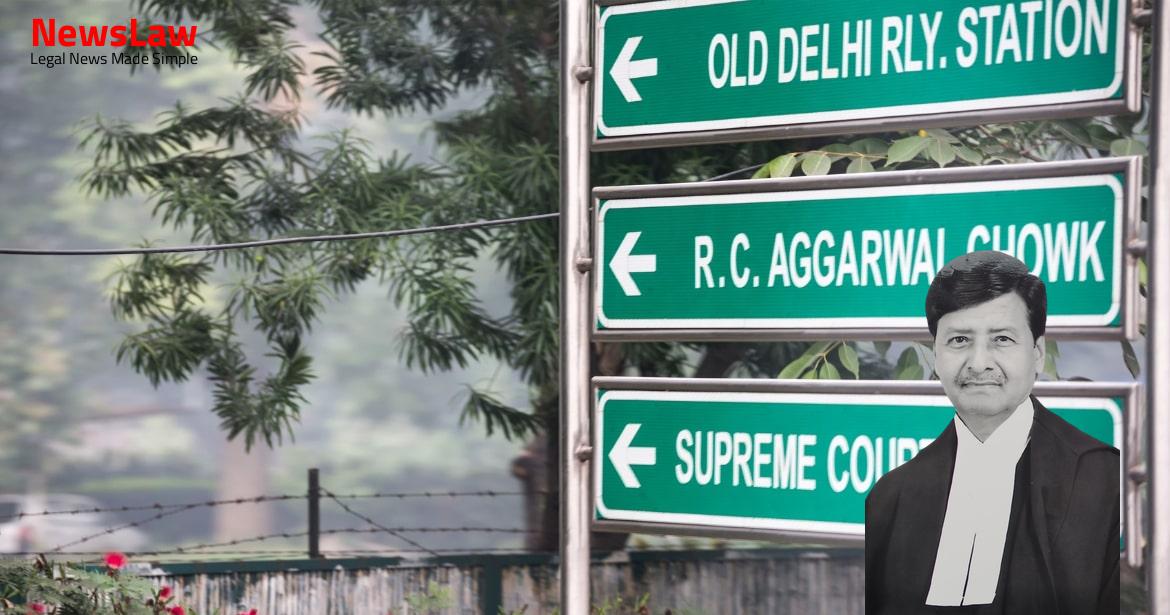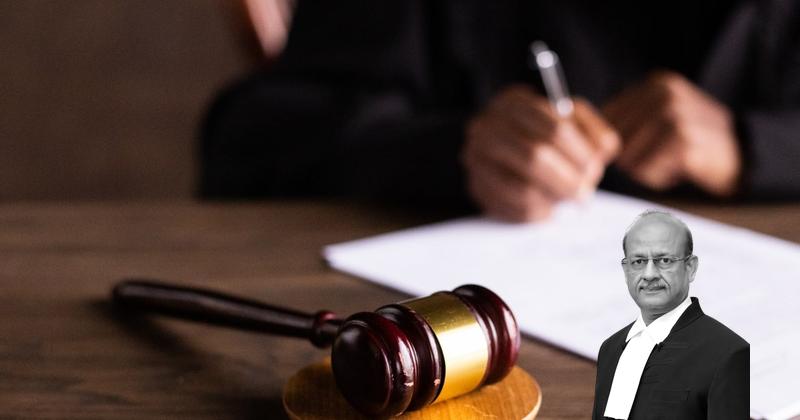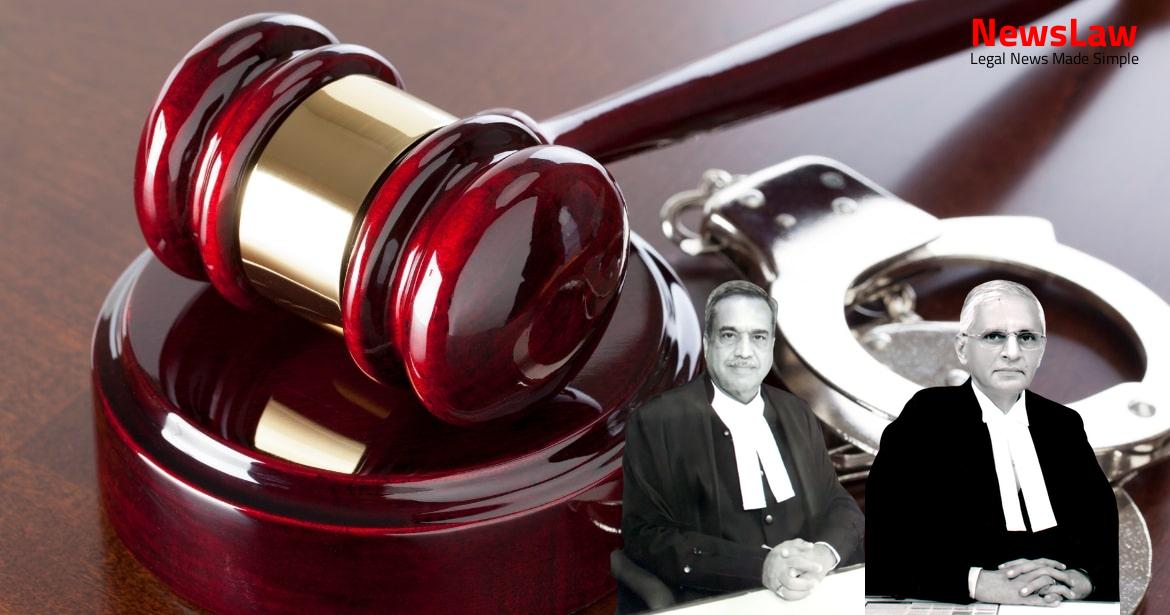In a significant legal ruling, the Supreme Court of India has addressed the disciplinary proceedings in the case involving misconduct. The judgment examines aspects such as delay, natural justice, and evidence in the disciplinary inquiry. The case sheds light on the importance of procedural fairness and adherence to rules in such matters. Stay tuned to learn more about the details of this case and the implications of the court’s decision.
Facts
- The disciplinary authority found that Shri Udai Bhan Singh had contravened the provisions of rule 543(10)(b) of P&T Man. Vol. VI Part II.
- The inquiry officer’s report dated 18 July 1990 found that the first charge against Shri Udai Bhan Singh was partly proved, indicating his involvement in causing losses to the department by violating rules.
- The first and second articles of charge were deemed partly proved by the disciplinary authority, while the third charge was fully established.
- A penalty of a reduction of pay for five years with consequential loss of annual increments was awarded to Shri Udai Bhan Singh by the disciplinary authority on 31 August 1990.
- Following the order of the Tribunal, a notice was issued to Shri Udai Bhan Singh to show cause before forming a fresh decision.
- The Tribunal set aside the order of the appellate authority and the disciplinary authority, remanding the proceedings back to the disciplinary authority.
- The High Court intervened, citing a violation of natural justice and delay in providing relevant documents during the disciplinary inquiry.
- The High Court directed reinstatement with full back wages and benefits based on these grounds.
- The disciplinary authority found all charges fully proved and imposed a penalty of reduction in scale for five years initially.
- Upon remand, the disciplinary authority upheld the inquiry officer’s findings but decided on dismissal from service due to the seriousness of the misconduct.
- The argument put forth was that delay alone does not invalidate disciplinary proceedings, and it must be assessed based on the prejudice to the employee.
- After the Tribunal’s initial decision, the proceedings were back before the disciplinary authority, and an appeal led to the issuance of a dismissal order by the appellate authority.
Also Read: Court’s Jurisdiction in Re-appraising Arbitrator’s Findings
Arguments
- The non production of documents was urged by the appellants as being correctly assessed by both the appellate authority and the Tribunal.
- The respondent raised the ground of non-production of documents during the disciplinary proceedings.
- The charge against the respondent did not indicate any defalcation of funds or loss to the department.
- There was a significant delay between the Tribunal’s order in 1992 and the final disciplinary authority’s decision.
- The respondent argued that it was not fair to proceed against him after such a long lapse of time.
- The respondent claimed that not having access to the necessary documents hindered his defense preparation, indicating a breach of natural justice.
- Receipts were discovered to be prepared in the names of fake agents, resulting in wrongful payment of NSC commission.
- A charge was made that the respondent failed to supervise the process, leading to payments to fake NSC agents.
- The charges against the respondent primarily focused on the failure to verify bills submitted by NSC agents and the omission of payment entries in the ledger.
Also Read: Contrary Directions in Issuance of Letter of Intent
Analysis
- The disciplinary authority issued a notice to the respondent to submit a response after reinstatement.
- The Tribunal restored the proceedings to allow fresh show cause notice and representation opportunity.
- No requirement for a fresh inquiry or new evidence post the tribunal order.
- The delay in issuing the show cause notice after eight years did not prejudice the respondent.
- Non-availability of a specific document did not impact the established misconduct charges.
- The appellate authority enhanced punishment without sufficient reasons.
- The delay in issuing the show cause notice and final order did not prejudice the respondent.
- Evidence existed before the remand, and the documentary evidence was presented.
- High Court’s observation on non-supply of documents lacked specificity on relevance and prejudice.
- High Court should have explored the issue of prejudice due to lack of specific documents.
- The plea on failure to supply documents was deemed vague by the High Court.
- Issue of erroneous reference to Rule 27 of the Central Administrative Tribunal Rules was raised.
- The breach of natural justice was considered in light of evidence recorded during the inquiry.
- Specific documents that should have been supplied were not indicated by the respondent.
- The respondent was responsible for maintaining the unavailable receipts, causing a gap in evidence.
- No delay in initiating the disciplinary inquiry was observed.
- The Tribunal’s remand led to the respondent’s reinstatement during further proceedings.
- Section 27 of the Administrative Tribunals Act 1985 was relevant for executing Tribunal orders.
- The disciplinary authority addressed the question of natural justice failure.
- Delay aspect was to be evaluated based on the admitted facts.
- The decision in State of Madhya Pradesh vs. Bani Singh and Another highlighted a case of unexplained delay in initiating disciplinary proceedings related to irregularities from 1975-1977.
- The Court found it unreasonable for the department to take more than twelve years to initiate disciplinary proceedings despite being aware of the irregularities.
- Cases must be determined based on their specific facts, and each instance of delay must be analyzed individually.
- The principles for quashing a proceeding due to delay include scenarios where the employer condones the lapses of the employee or where the delay causes prejudice to the employee.
- Any claim of prejudice due to delay must be substantiated by the employee during the inquiry.
- Subsequent decisions such as State of Punjab and Others vs. Chaman Lal Goyal have clarified the position of law regarding delays in departmental proceedings.
- According to the Court in Government of Andhra Pradesh and Others vs. V.Appala Swamy, no strict rule can be established for determining delay in concluding departmental proceedings against a delinquent officer.
- The appellants did not condone the lapse on the part of the respondent.
- The delay did not cause any prejudice.
- The High Court erred in interfering with the disciplinary jurisdiction of the appellants.
- The penalty imposed was not disproportionate or arbitrary.
Also Read: Application for Stay in Civil Suit Rejected: Court’s Legal Analysis
Decision
- The appeal was allowed and the High Court judgment was set aside.
- The Central Administrative Tribunal’s judgment dismissing the Original Application was affirmed and the penalty imposed in the disciplinary proceedings was upheld.
- No costs were ordered.
- Misconduct was proven.
- No recovery will be made from the individual for the period he worked and received a salary following the Tribunal’s first order.
- The High Court’s decision to set aside the punishment and order reinstatement with back wages and continuity of service was deemed erroneous.
Case Title: UNION OF INDIA THR. SECRETARY Vs. UDAI BHAN SINGH
Case Number: C.A. No.-009303-009303 / 2013



